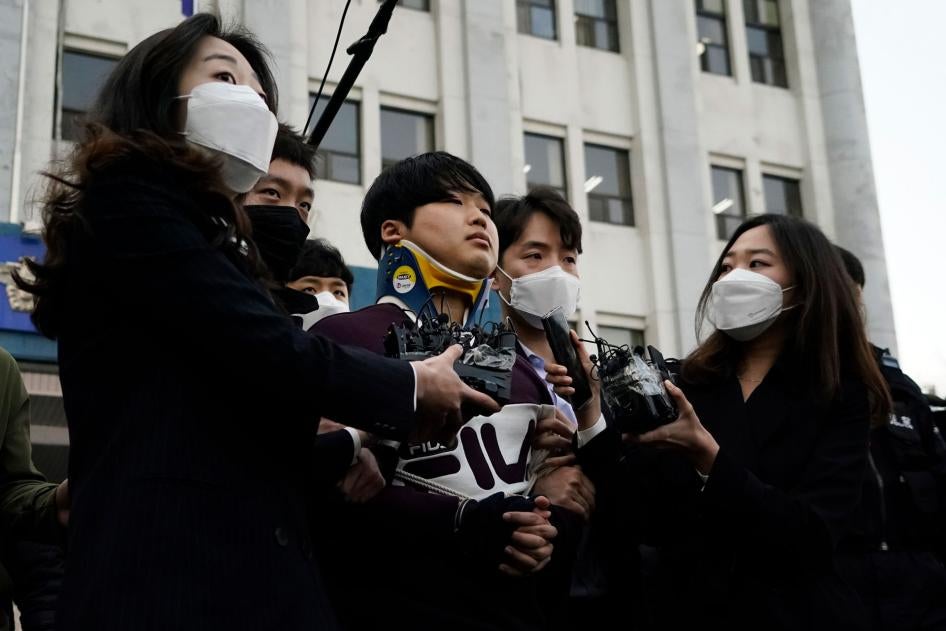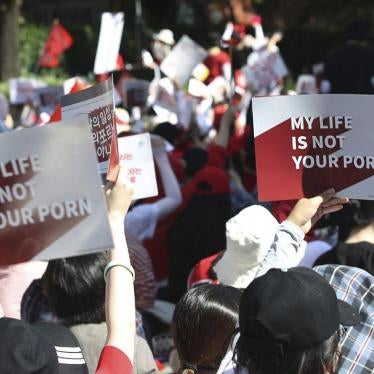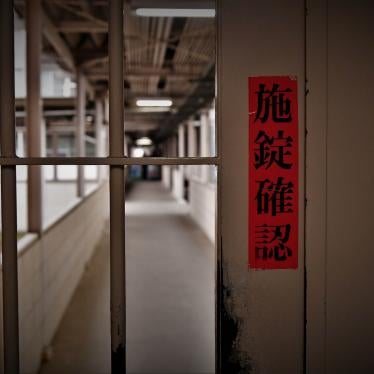Last week, online sexual violence against women drew widespread public attention in South Korea when police arrested the operator of multiple sexual abuse chat rooms on messaging apps like Telegram. The disturbing case involves the alleged coercion and blackmailing of at least 58 women and 16 girls beginning in late 2018. Authorities have detained 18 additional perpetrators and arrested over a hundred other chat room participants.
According to news reports, an estimated 260,000 participants, including overlapping members in different chat rooms, paid up to 1.5 million won (US$1,200) for access, “proving” themselves by posting misogynistic content. The chat room operator obtained explicit sexual and sometimes violent footage of victims, such as nude photos, by luring women and girls under false pretenses, including offering employment, and gathered their names and contact details, then used the images to blackmail them into producing increasingly cruel and dehumanizing footage.
The case, commonly referred to as Telegram Nth Room, has sparked widespread public outrage. Millions of Koreans signed petitions calling for police to reveal the identities of the chat room operator and all other participants.
The government responded swiftly. In a rare decision, police identified 24-year-old Cho Joo-bin as the chat room operator earlier this week, and the prosecutor’s office announced the investigation will be public. President Moon called on police to thoroughly investigate the chat room, and promised additional measures to tackle the evolving nature of digital sex crimes. In a press release, the Ministry of Justice apologized for its historically “lukewarm response” to digital sex crimes and promised tougher efforts. The commissioner general of police committed to thoroughly investigating the Telegram Nth Room case, creating two new bodies, the first dedicated to cooperating with overseas law enforcement authorities and technology companies, and the second a prosecution-led task force that incorporates expertise in child and youth crimes and recovering illegally obtained gains from criminals.
Intensified government attention to digital sex crimes is important, as major gaps in law, enforcement, and support for victims remain. In 2018, women’s rights activists protested widespread covert filming of women and girls via hidden cameras in locations such as toilets and changing rooms and circulation of this footage, driving some important efforts by the government to crack down on digital sex crimes. But South Korea’s laws still permit many perpetrators to avoid serious penalties, and police and prosecutors too often ignore or mishandle these cases, retraumatizing victims and denying them justice.
Although the Telegram Nth Room case represents a new and especially disturbing form of digital sex crime, it is part of a broader trend that urgently demands a comprehensive response in South Korea and elsewhere. Governments should carefully reform criminal laws to protect women from violence and protect their right to privacy while also protecting freedom of expression. Police, prosecutors, and judges need to ensure survivors’ rights are at the forefront of all justice responses, and governments should ensure survivors have access to mental health support, legal assistance, and civil remedies.










